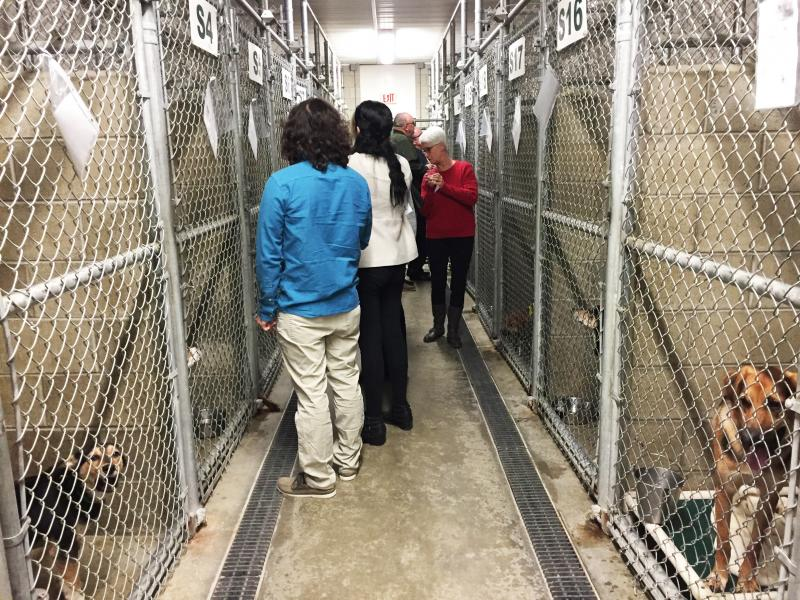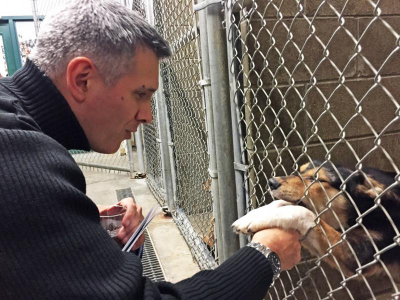Humane Society making pet food deliveries to vulnerable residents
Dartmouth’s Humane Society and Shelter Southcoast has announced that the shelter will provide any senior citizens who live in town with free pet food and supplies delivered to their doorstep.
Shelter director Melinda Ventura stated that the organization will be making no-contact deliveries to the elderly thanks to a donation of five pallets of dog food from the local Stop & Shop, which was delivered to them by Dartmouth Towing.
Dartmouth resident senior citizens can call (508) 995-6661 to ask for a free delivery of dog or cat food and cat litter. If no one answers, Ventura said, callers can just leave a voicemail and someone will get back to them.
The service is being offered only to those at high risk of getting the coronavirus, and is meant to prevent the elderly from having to go shopping for pet food during the pandemic.
Ventura noted that the shelter is also collaborating with animal control officers in the greater New Bedford area so that any seniors on the South Coast can request a delivery through their local officials, while supplies last.
“We’ll make all the arrangements to deliver to doorsteps in Dartmouth,” Ventura said.
The shelter is also accepting donations of pet food or pet supplies. Those wishing to donate can leave supplies outside the front door of the shelter at 31 Ventura Drive, North Dartmouth, or call the shelter to make other arrangements.
Ventura said that the shelter is still operating, but it has reduced hours and limited the number of people coming into the building during the pandemic.
Although adoptions are still ongoing, she said, “anybody who wants to adopt should call or email mventura6089@comcast.net to get an application approved ahead of time.”
Adoptable animals are listed on facebook.com/SOUTHCOASTHUMANE under Animals to Adopt.
“It’s pretty trying times,” Ventura noted, because transportation cancellations have led to a lack of adoptable animals being sent up from overcrowded shelters in the south.
“It’s very unfortunate, because if the foster homes don’t move animals from down south, the shelters are overflowing down there,” she added. “It’s turned into a logjam situation.”














